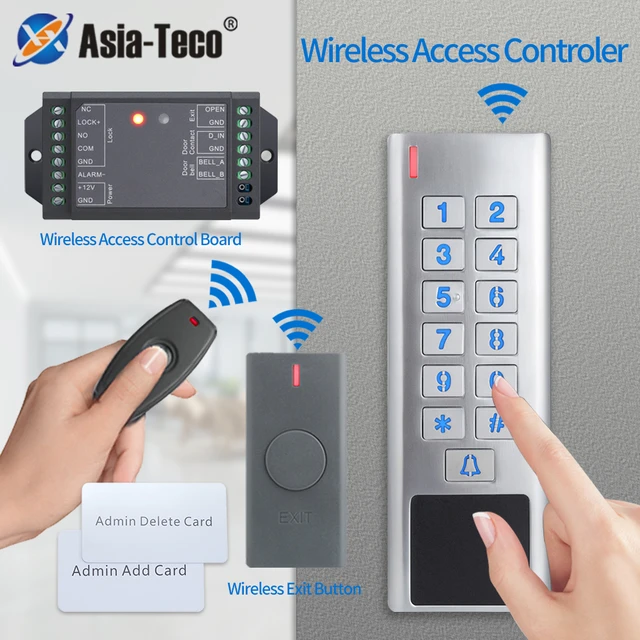
Unlocking the Future: The Power of Intelligent Access Control
In the realm of security and convenience, intelligent access control has emerged as a transformative force, reshaping the way we manage and interact with physical spaces. This article delves into the key features, benefits, and the profound impact of intelligent access control in revolutionizing the way we approach entry and security.
Seamless Integration for Modern Spaces
Intelligent access control seamlessly integrates into modern spaces, providing a sophisticated and streamlined approach to managing entry points. These systems go beyond traditional key and lock mechanisms, offering a versatile and interconnected solution. The integration of intelligent access control aligns with the evolving needs of contemporary environments, whether it be in residential, commercial, or industrial settings.
Explore Cutting-Edge Solutions at Yakima Futures
Discover cutting-edge intelligent access control solutions at Yakima Futures. The platform showcases a range of innovative access control technologies designed to elevate security and streamline entry management. Explore the future of access control with state-of-the-art solutions.
Biometric Authentication: A Personalized Approach
One of the hallmarks of intelligent access control is biometric authentication. This technology utilizes unique biological traits, such as fingerprints, facial recognition, or iris scans, to grant access. Biometric authentication adds a personalized layer of security, ensuring that only authorized individuals can enter a space. The seamless and quick verification process enhances both security and user convenience.
Smart Card Systems for Effortless Access
Smart card systems are integral components of intelligent access control. Users can gain entry by presenting smart cards embedded with secure credentials. These cards can be easily issued, deactivated, or replaced, providing a convenient and flexible means of access management. Smart card systems contribute to the overall efficiency of access control in various environments.
Remote Access Management: Anytime, Anywhere Control
Intelligent access control extends its capabilities with remote access management. Through web-based platforms or mobile applications, administrators can monitor and manage access points from anywhere. This feature proves invaluable for scenarios where real-time control and monitoring are essential, offering a responsive and convenient solution for modern access control needs.
Integration with IoT for Enhanced Connectivity
The integration of intelligent access control with the Internet of Things (IoT) further enhances connectivity. This interconnectedness allows access control systems to communicate with other smart devices, creating a cohesive and synchronized ecosystem. From adjusting lighting based on occupancy to automating temperature controls, the synergy with IoT adds layers of intelligence to access control.
Scalability for Dynamic Environments
Intelligent access control is designed with scalability in mind. Whether in a small business with a few access points or a sprawling enterprise with numerous entryways, these systems can adapt and scale accordingly. The scalability ensures that access control solutions remain effective as spaces evolve and expand, accommodating the dynamic nature of modern environments.
Audit Trails and Reporting for Enhanced Security
An essential feature of intelligent access control is the ability to generate detailed audit trails and reports. These logs provide a comprehensive overview of access events, including entry attempts and granted access. This feature enhances security by allowing administrators to review and analyze access patterns, detect anomalies, and promptly address potential security concerns.
Customizable Access Permissions
Intelligent access control allows for granular control over access permissions. Administrators can customize access levels based on roles, departments, or specific individuals. This fine-tuned control ensures that only authorized personnel have access to designated areas, contributing to a more secure and organized environment.
Biometric Technology and Privacy Considerations
While biometric authentication is a powerful aspect of intelligent access control, privacy considerations are paramount. Reputable providers implement robust security measures to protect biometric data, often storing it in encrypted formats. Clear communication and adherence to privacy regulations ensure that individuals feel secure in the use of biometric technology for access control.
Conclusion: Redefining Access in the Digital Age
In conclusion, intelligent access control is reshaping the landscape of entry management and security. From biometric authentication to remote access management, these systems offer a comprehensive solution for modern spaces. As we continue to embrace the digital age, intelligent access control stands at the forefront, redefining how we approach security and access in an increasingly interconnected and dynamic world.
